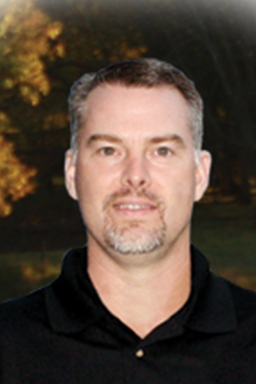President’s Message: As defined by the challenge of our times… (Jul-Aug 2013)
This spring my daughter, Amanda, was elected Secretary of the North-Central District of the Iowa FFA Association. I am proud of her achievement, and it has been a lot of fun for me to talk with her about all the leadership training exercises and workshops that she is going through as part of her journey in the FFA leadership. Many things change over time, but there is comfort in seeing that some things stay the same. I shared this journey with her, only a generation before.
Amanda recently got home from the State Leadership Conference for District Officers. She was telling me about an exercise early in the conference that was a little frustrating for them at first, but ultimately very fulfilling. It was a teamwork exercise in which they had to complete a task that none of the participants were familiar with. As she told me about it, I was thinking – is this a situation in which the presenter slipped a critical piece of information by them (communication and listening exercise)? Or is it one of those exercises where the moderator leads you to understand a false set of “rules” that has the team headed in the wrong direction? It turns out it was both. They got through it fine and the moderator seemingly did an outstanding job of teaching them about teamwork and problem solving. That moderator, through Amanda’s experience, also did a good job of reminding me about the same lesson that I had learned years before.
In leadership workshops like the one that my daughter just went through and that I went through a few years back, the challenges are similar. Sometimes we miss a critical piece of information. Sometimes we make false assumptions. Sometimes we lose track of the resources that surround us and we don’t fully appreciate good teamwork. All too often we become so focused on the process itself that we forget to step back and exercise some creativity. We get tunnel vision and don’t see something that should have been obvious.
It has always been my assertion that, as veterinarians and as scientists, we are primarily problem solvers and solution finders. In an effort to serve our clients and our patients, that is what we do every day. It strikes me that our challenge in pursuit of these solutions is complicated by all the same risks my daughter recently experienced. We do sometimes miss a critical piece of information. Other times we make false assumptions. We can certainly lose track of the resources that surround us, and we don’t always fully appreciate the value of teamwork. And all too often, we become so focused on the process itself that we forget to step back, see things from a different perspective, and exercise some creativity. We occasionally get tunnel vision and don’t see something we should have seen.
Often a solution is found by stumbling upon a clever little observation, idea, or concept that we have just been missing. Some of science’s most fundamental discoveries have been simple observations made by people with the vision to apply them in some profound and creative way. Like the observation that certain bacteria were unwilling to grow in the presence of mold colonies on an agar plate. How important was the observation of milkmaids’ apparent immunity to smallpox? The observation of a missing protein in an electrophoresed gel gave rise to a gene-deleted vaccine for pseudorabies virus. How long did we poke holes in pigs before we realized the value of saliva as a diagnostic tool (thanks, Dr Zimmerman)? Great solutions aren’t always complicated, but they are often clever.
The success of people is always defined by the challenge of their time. What will history say of our time? Certainly it is left to be written, but my hope is that it will say that we eradicated pseudorabies and that we “fixed” circovirus related disease. Porcine reproductive and respiratory syndrome virus and swine influenza virus are still clearly a frustrating challenge of our era as veterinarians. What are we missing? Who will make a simple observation that allows us to advance the battle in regard to better managing or eradicating the diseases caused by these viruses?
I don’t have a clear idea of how the veterinary history books will be written about our time in the profession. But I do know that what we perceive at the beginning of a journey isn’t nearly as important as what we have left behind at the end of it.
Matt S. Anderson, DVM AASV President
